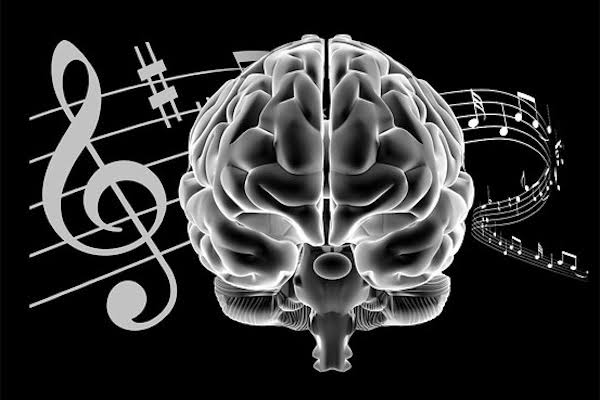Did you know that music can make you and your baby smarter and happier? Music is a sacred tool used for ages to make us happy and productive. We’ve always known that music has a powerful, transformative and unifying effect on people. But now we know that music contributes to better memory and cognitive skills. It’s not only a big support for the adult brain but also a great help to a developing brain. This is because listening to, and playing music, produces changes in the brain and releases a healthy dose of endorphins, the so-called ‘happiness hormone.’
What happens when babies listen to music
Music makes a big difference to the baby’s brain. After listening to music the part of the brain which is responsible to listen to sounds (auditory and prefrontal cortexes) looks different. Along with listening if the baby produces some new connection in cognitive power. It helps in more sensory stimulation.

Listening to music vs playing music
While listening to music impacts the brain, making music is even more powerful. This is because making music requires fine motor skills (such as being able to grip and squeeze objects), as well as linguistic and mathematical precision, and creativity ─ firing up several areas of the brain. Tapping into these skills means developing the bridge between the two hemispheres of the brain, which allows messages to get across the brain faster and across different routes.

The benefits of music for developing brain
Improvement of mood
- Improve moods and empower young children. They try to imitate the beats and become happy. It helps in the increase in emotional intelligence of children.
Increase in empathetic behaviour
- Empathy and group play are the key for personality development. Music helps in hormonal conditioning. Stimulate the formation of brain chemicals such as dopamine and oxytocin. When these are released, children are encouraged to share toys, empathize and trust others.
Improvement in learning
- Music helps in Improvement of learning and grades. Even before babies are able to talk, their babbling and sound-play helps them to develop neural pathways necessary for listening and speaking. Music can boost one’s overall IQ. Studies have shown that learning to play an instrument can have a lasting effect.
Improvement in communication and imagination
- Develop spatial intelligence which lays the ground for an interest in mathematics, engineering, computer science and architecture. Along with the child develops good communication and imagination. The coordination between two sides of the brain improves.
Improves vocabulary
- Music can improve vocabulary. The way we process musical sound is the same way we process speech. Because of this, children who take music lessons can improve their listening skills and, in turn, improve the way they process language. Along with it, it helps to improve writing too.
Decrease in stress
- Music helps in decreasing childhood stress. A lot of parents tuck their children in with a lullaby or calm them down with a song. Just as music can soothe a child, it can also lift their spirit. Music therapy is being used to complement more traditional forms of medicine. Researchers acknowledge that certain types of music can aid relaxation by lowering heart rates and blood pressure.
Age wise effect of music




Music is a nice tool for both physical and emotional development of children. Classical music has a more complex musical structure. Babies as young as 3 months can pick out that structure and even recognize classical music selections they have heard before. Researchers think the complexity of classical music is what primes the brain to solve spatial problems more quickly.
So play good classical music at home. It will help young children in both mental and physical development.
Please read and share


Leave a Reply